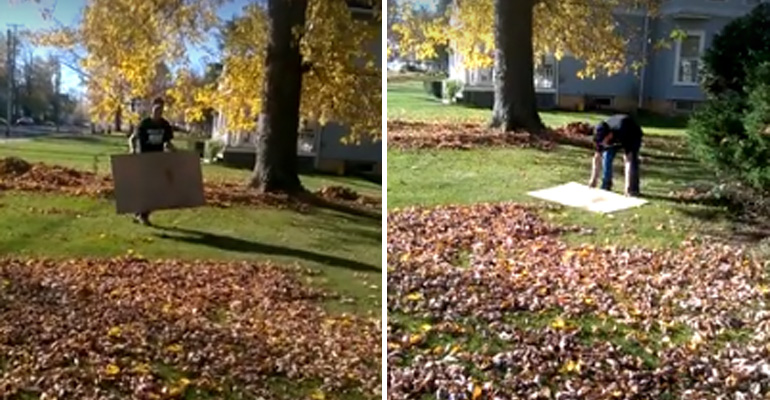If your grandparents ever shared stories from their youth, chances are they probably talked about The Great Depression. Times were difficult for many families who did everything to make ends meet as unemployment was extremely high.
Because clothing was expensive, many women began creating clothes for their families out of cotton flour sacks. When flour companies realized this, they began creating them with colorful patterns and offered DIY instructions for sewing ideas right on the package.
When flour companies noticed that women were creating dresses, dishcloths, and children’s clothing with their cotton flour sacks, they began printing them with colorful patterns.
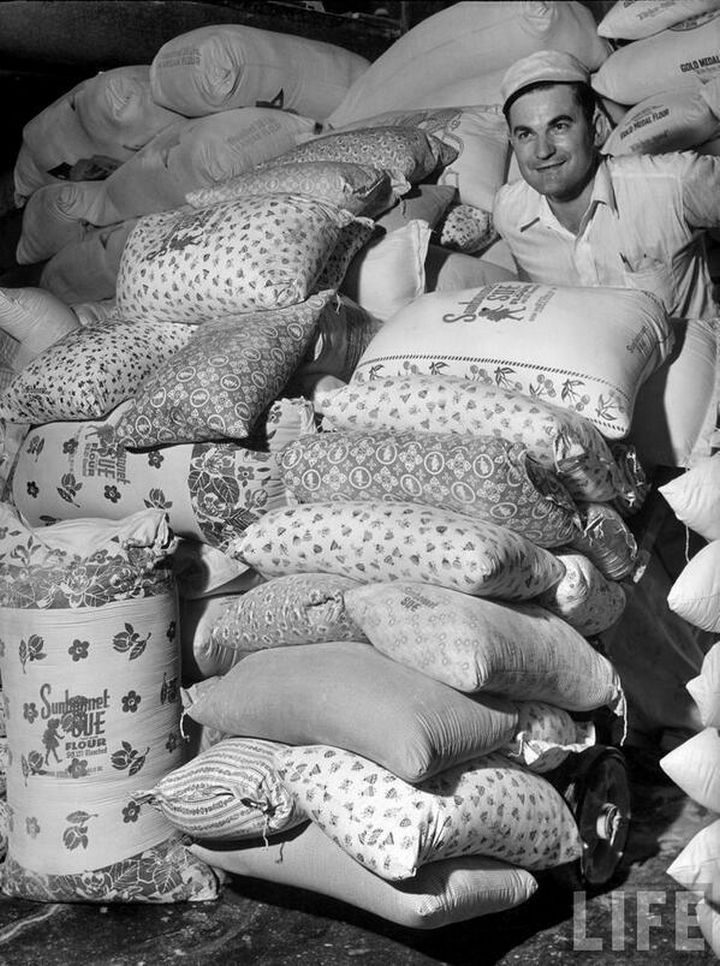
Flour sack clothing was common during the 1930s as many families didn’t have much money due to high unemployment.
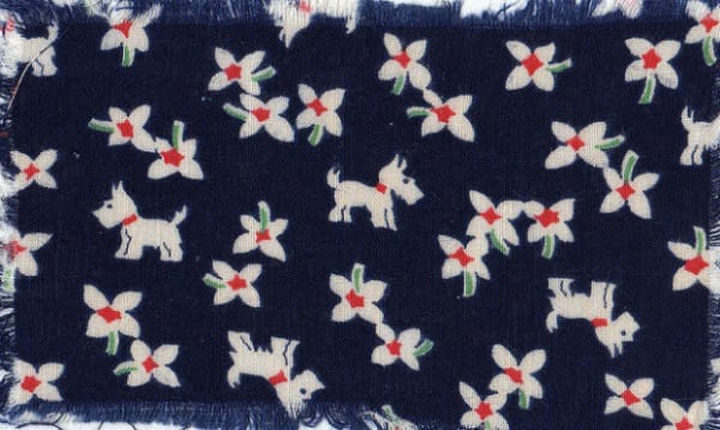
The Great Depression led to many families reusing and repurposing items to make ends meet.
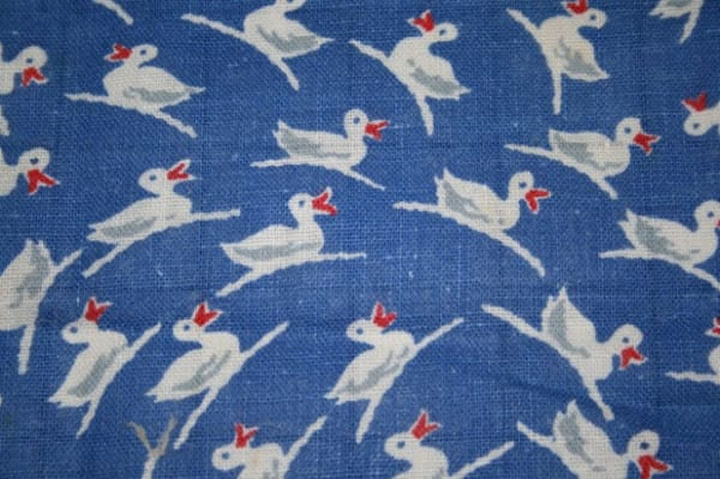
Flour mills were more than happy to print colorful designs to make flour sack clothing more appealing and colorful.
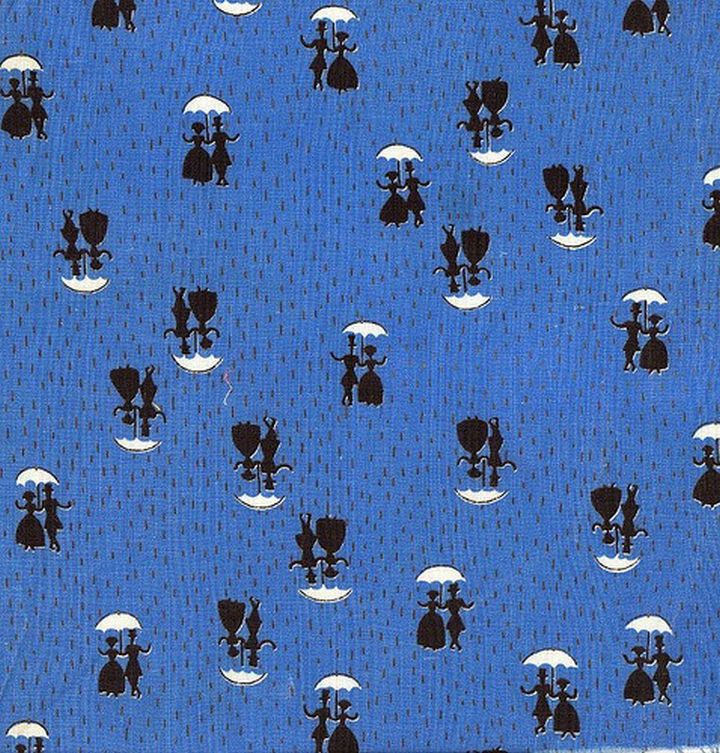
It is estimated that nearly 3.5 million women and children wore clothes and used items created from flour sacks.
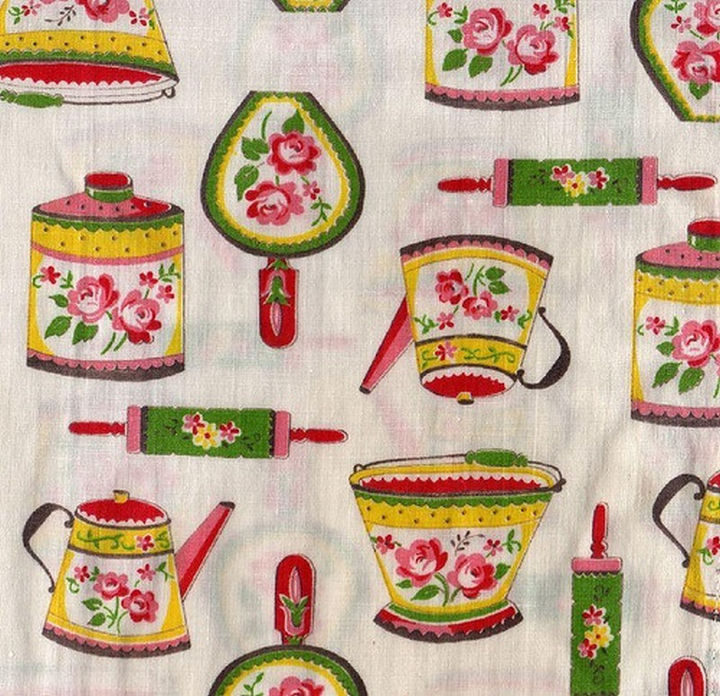
Flour companies printed several different patterns to help cotton sack clothing and items look unique.
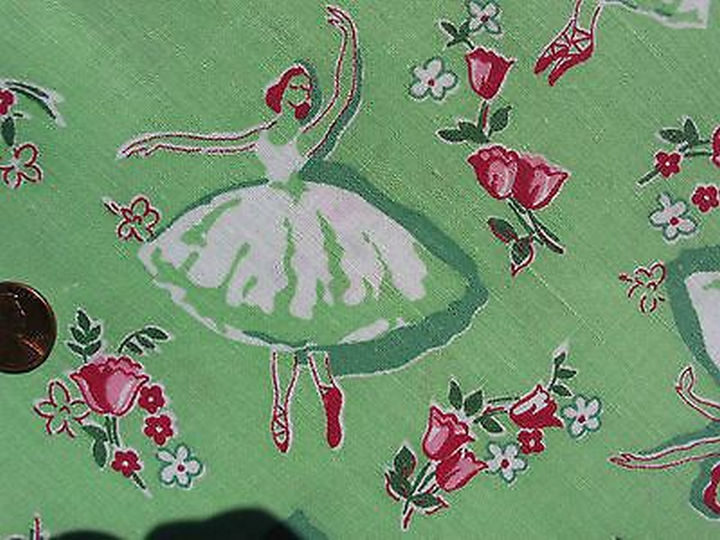
Flour sacks also came with instructions on how to wash away the company logo.
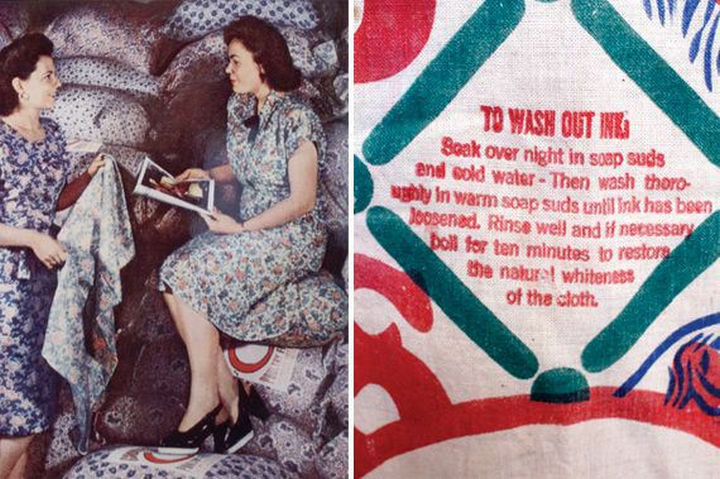
DIY guides were also prevalent in the 1930s but it wasn’t a trend and more of a necessity for many families.
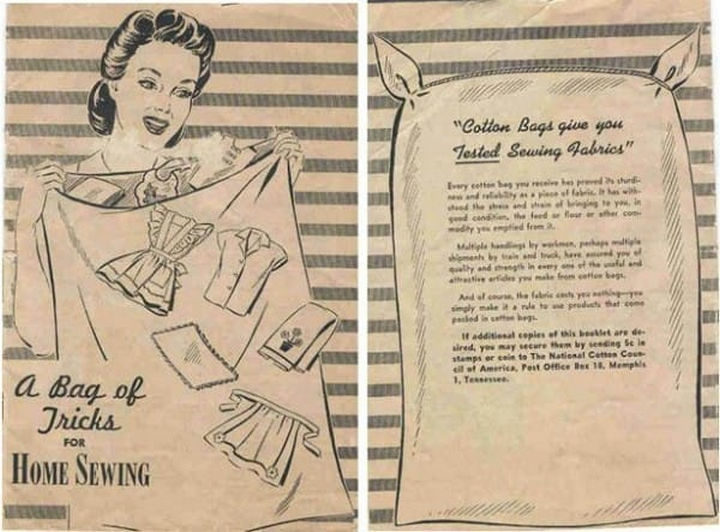
These children are wearing dresses and clothes made from flour sacks but you’d never know because of the colorful fabrics.
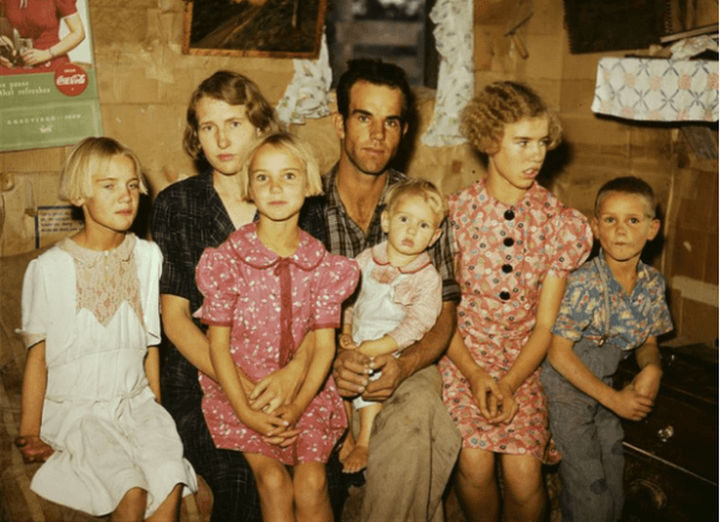
Not only children were wearing flour sack clothing but also women and teens.
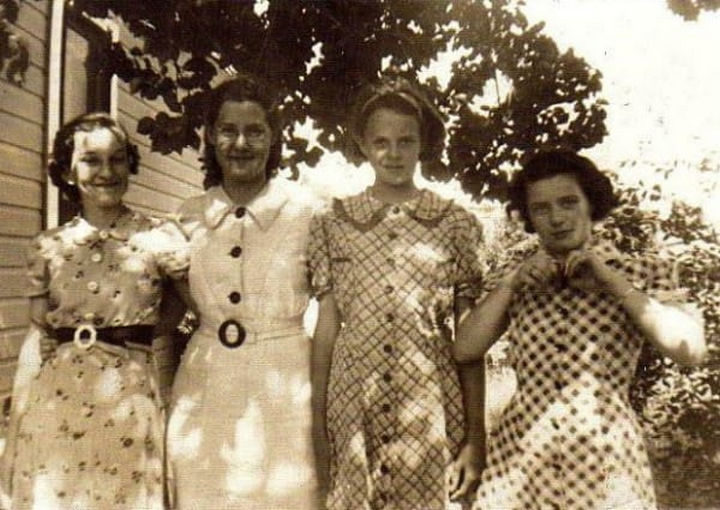
The flour sacks allowed families to create custom inexpensive clothing with colorful patterns.
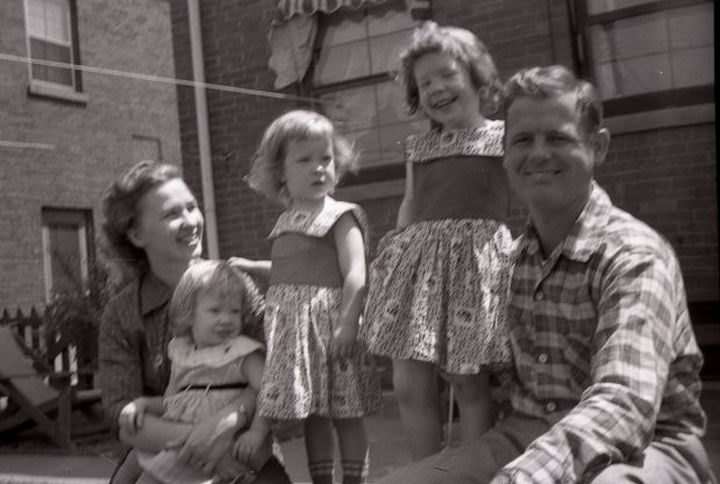
Some manufacturers would even include ideas and instructions right on the package.
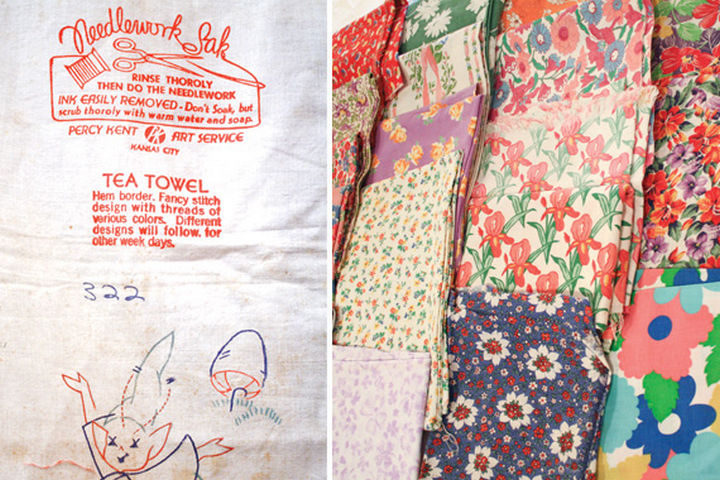
Sewing with cotton flour bags was so popular that many women and companies shared sewing techniques and patterns via printed booklets.
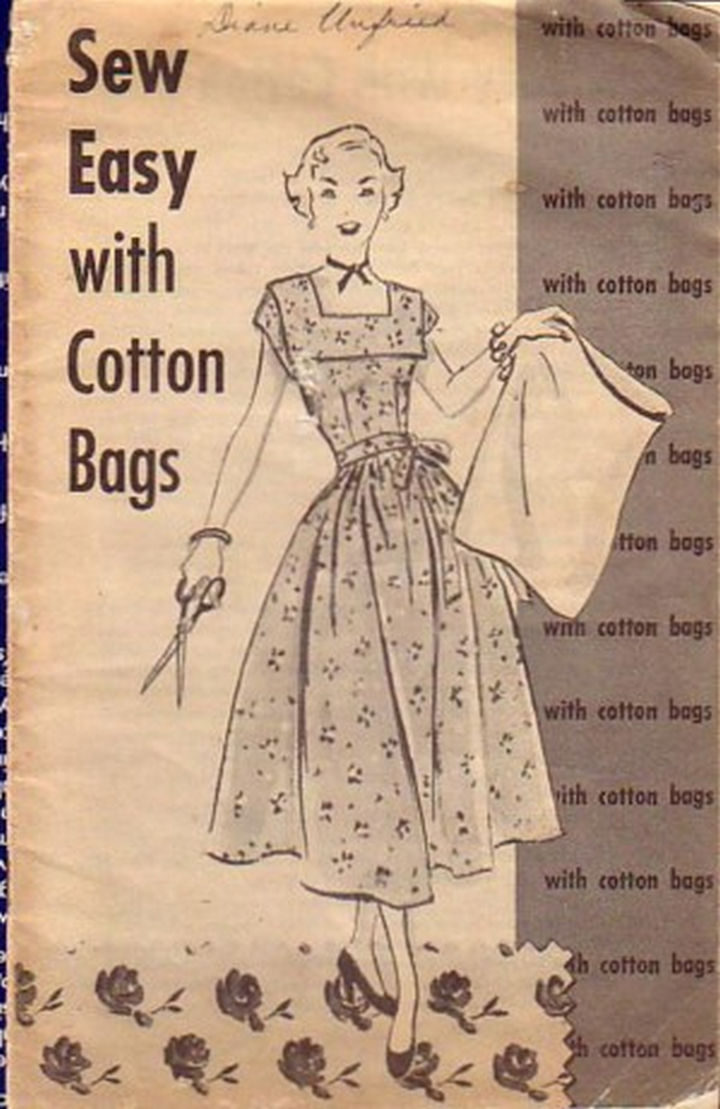
Companies and their employees took pride knowing that their flour sacks were being reused to help families on a strict budget.
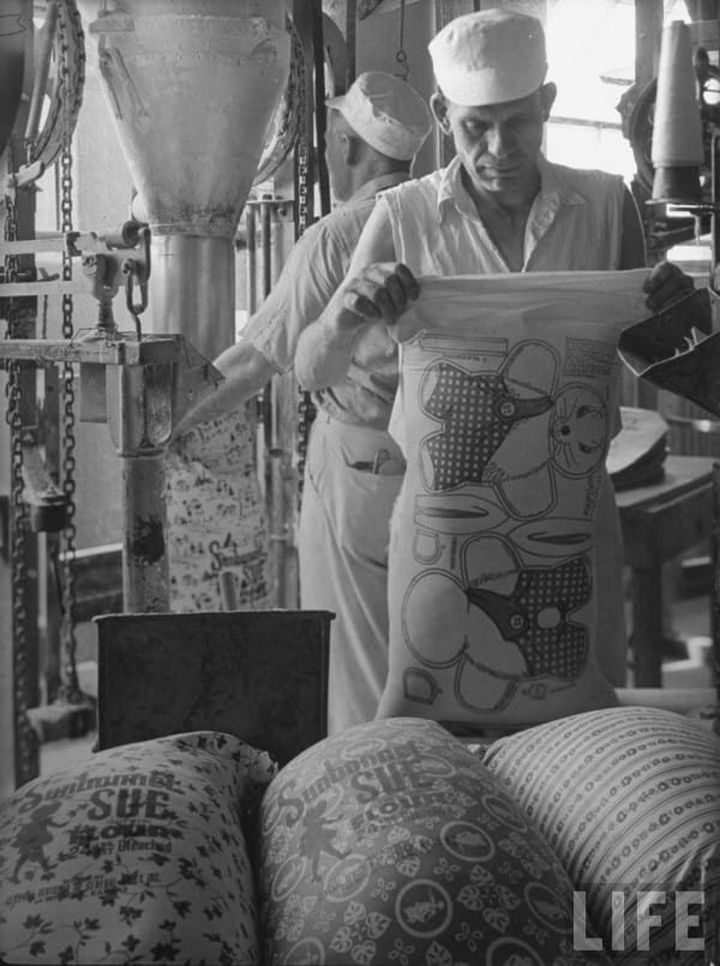
When children outgrew their clothing, mothers would use the fabrics again to make quilts and blankets.
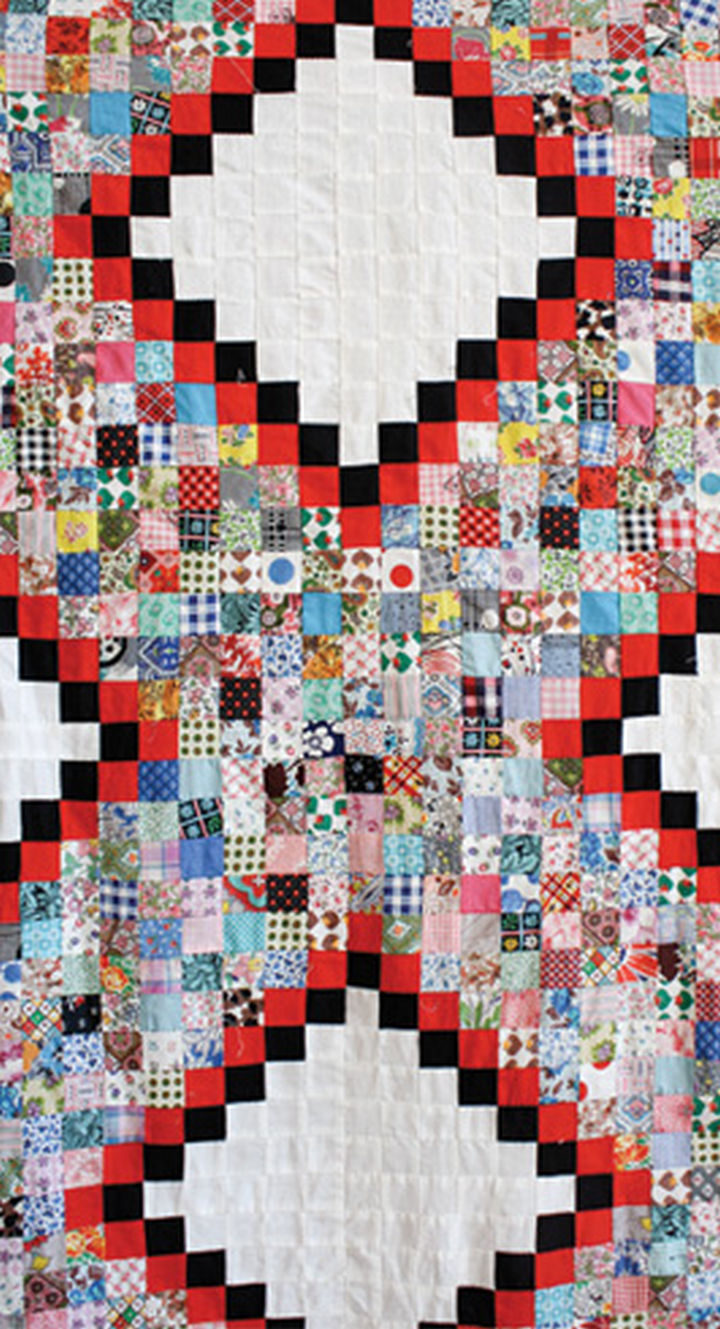
Some enterprising women also offered their sewing services to created dresses and clothing for families and also generate some income.
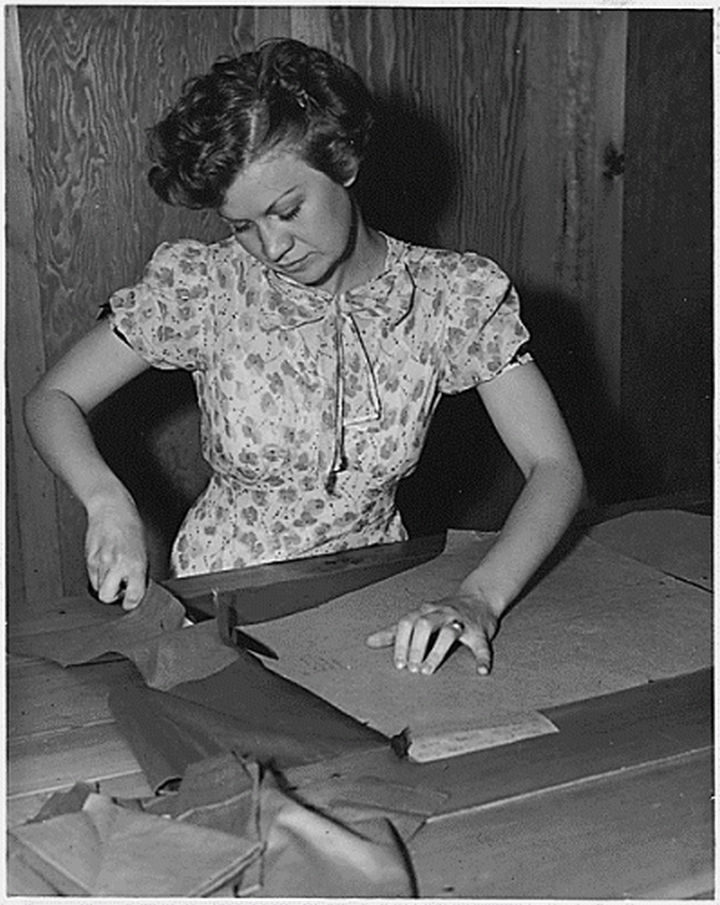
As the decade ended and gave way to the 1940s, World War II was starting and cotton had to be rationed to make uniforms for American soldiers.
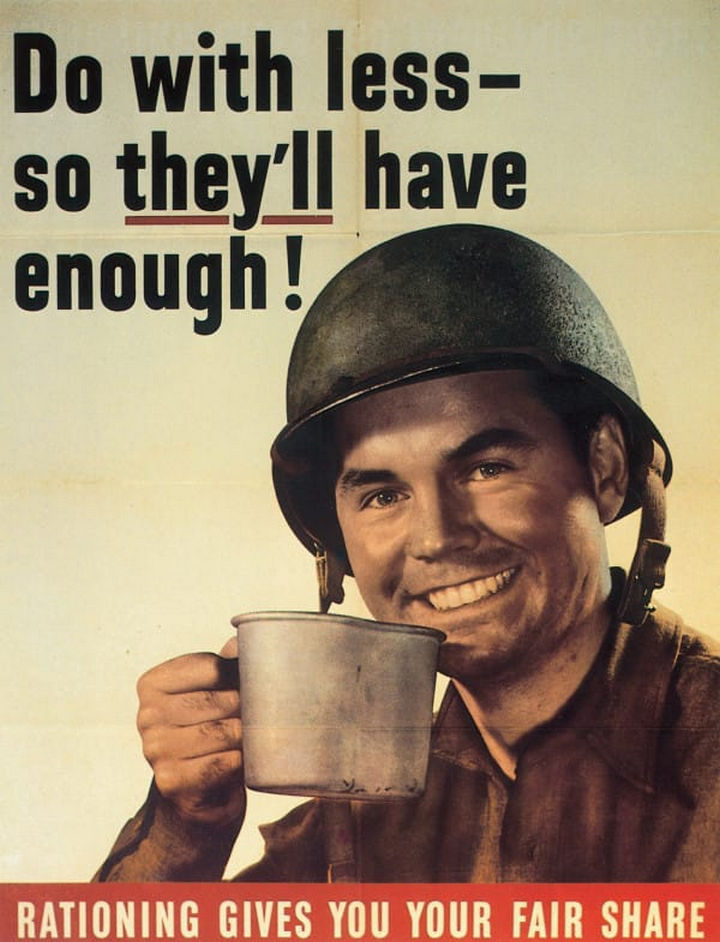
Families who grew accustomed to making clothes out of cotton flour bags were only happy to do anything they can to help the war effort.
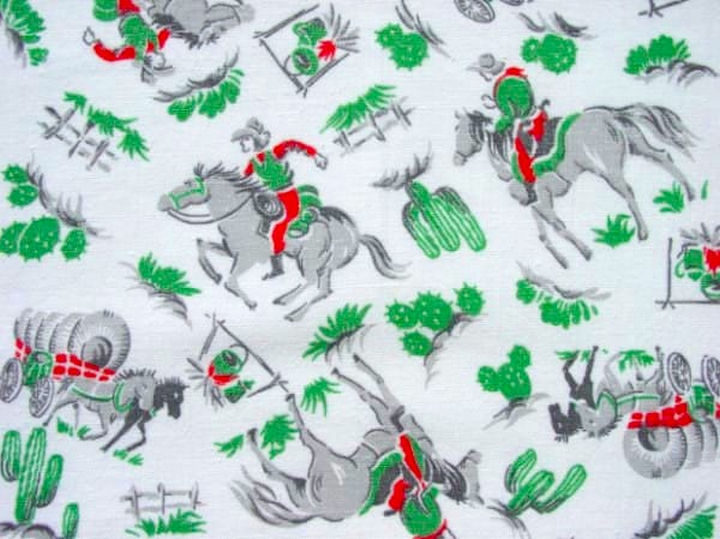
Flour companies helped them create clothing for their families and they were grateful.
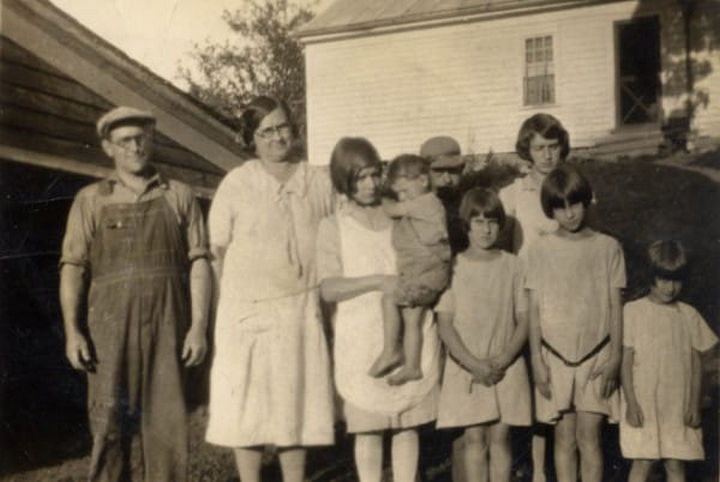
Cotton flour bags with colorful patterns were soon replaced with paper packaging.
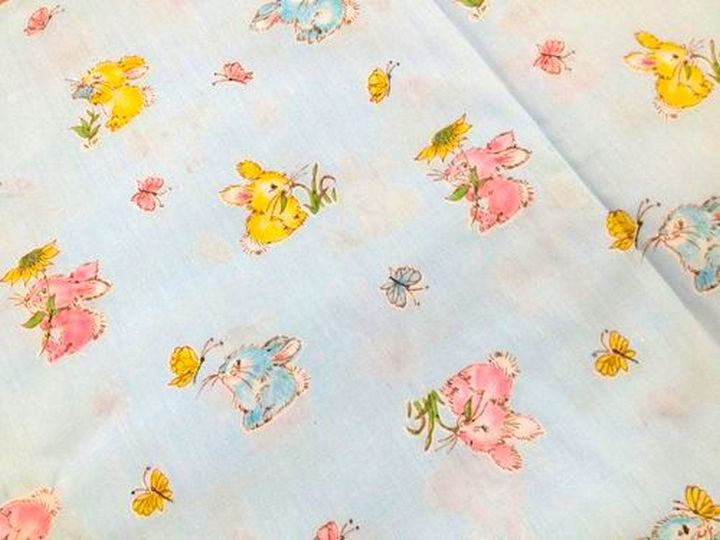
Flour has been packaged in paper bags ever since. It’s amazing to think that a simple staple like flour had such a rich history with American families.
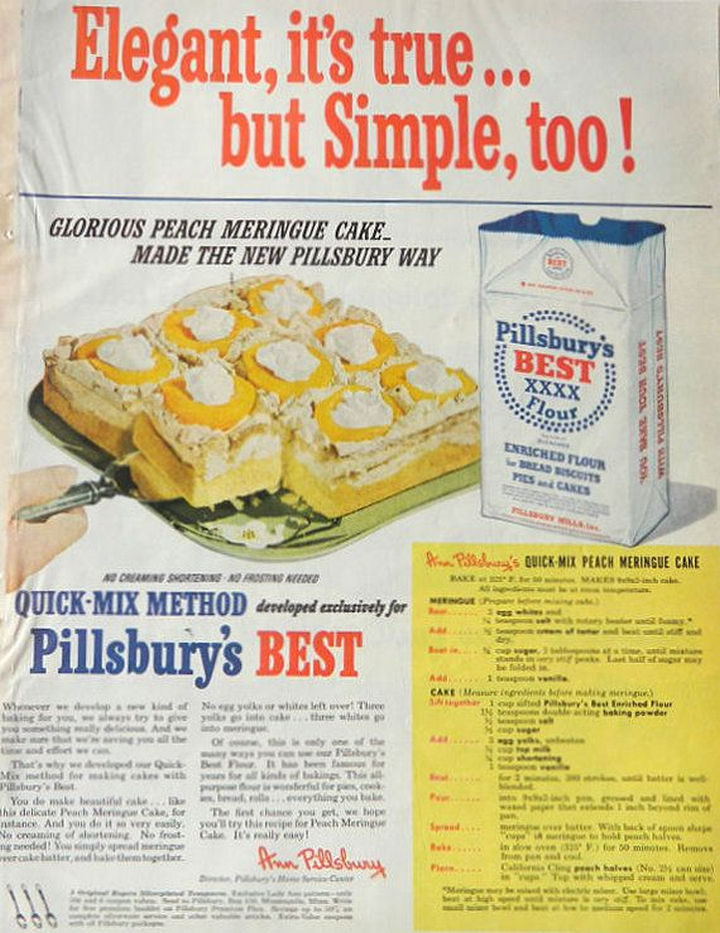
H/t: LittleThings
I can’t imagine how difficult it must have been to raise a family during the Great Depression.
Watch the video!
Please share the rich history of women creating dresses and clothing from cotton flour sacks in the 1930s with your friends and family.



